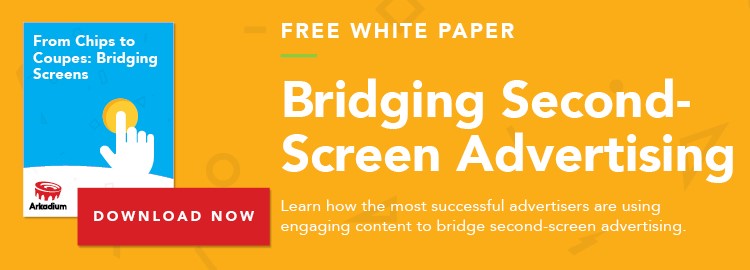How Anti-tracking Will Impact Digital Publishing and Advertising

Earlier this year Apple announced a new feature in Safari that is yet another industry disruptor.
Called Intelligent Tracking Prevention (ITP), it uses machine learning to identify third-party cookie trackers, obstruct cross-site data collection, and purge website data after 24 hours.1
According to Eric Franchi, co-founder of the ad tech firm Undertone, Apple’s anti-tracking move will “change the landscape very significantly,”2 considering the multibillion-dollar digital advertising industry behind it.
Here’s what it means for digital publishers and advertisers alike.
Targeting Difficulties
Even though Safari owns only 4 percent of market share in desktop browser and 33 percent in mobile and tablet, the potential programmatic advertising loss could be huge,3 considering the $32.56 billion in programmatic display ad spending in 2017.4
The industry at large will be impacted, as background cookie tracking, which continuously scripts data from users, will no longer be an option. Unused cookies will be purged after 30 days, and ad-tracking cookies will be completely wiped out after 24 hours.
Accordingly, publishers and advertisers that rely heavily on third-party tracking data will be affected adversely. In turn, retargeting will also be impacted.
Julie Rezek, president of HackerAgency in North America, commented that Apple’s restrictions on retargeting data would make it harder for advertisers to find users that fit specific demographics, which would hurt conversions and reduce reach.5
If a publisher’s ad performance declines, so will demand – resulting in a drop in CPMs, which could be financially crippling.6
Alternative advertising solutions
An alternative to programmatic ad buying are private marketplaces (PMPs), which serve as invitation-only ad auctions across premium publishers’ inventories. With the expected decrease in tracking ability, PMPs are expected to flourish.7
In PMPs, advertisers have more control due to unique identifiers called Deal IDs. Deal IDs help advertisers bid both accurately and effectively, by allowing both sides to agree on pricing, page placement and myriad other factors.8
With limited user data, advertisers will be forced to purchase ads directly from publishers, which would contribute to those publishers’ revenue.9
It’s a method that has already proven fruitful, even in the current ad-buying climate: Publishers that don’t currently rely on hypertargeting gain most of their revenue from direct sales.10
Branded content, another monetization strategy, is also a worthwhile alternative that shows strong promise.
For one, according to a study from OneSpot and Marketing Insider Group, more than three quarters of consumers said relevant branded content increases their purchase intent.11
Among those surveyed, 88 percent of consumers said that personally relevant content improves how they feel about the brand.12
Similarly, a Harvard Business Review study showed that consumers who feel a genuine emotional connection with a particular brand generate disproportionate value for that brand.13
Although Apple’s anti-tracking move seems to be an obstacle to today’s digital advertising ecosystem, there are alternative solutions that have already proven to be effective.
1 Ha, Anthony. “Apple defends new ad-tracking prevention measures in Safari.” TechCrunch. TechCrunch, 15 Sept. 2017. Web. 25 Sept. 2017.
2 Swant, Marty. “Apple’s next version of Safari will block desktop ad-tracking and autoplay videos.” Adweek. Adweek, 5 June. 2017. Web. 21 Sept. 2017.
3 Browser market share, n.d. https://www.netmarketshare.com/browser-market-share.aspx?qprid=0&qpcustomd=0, Web. 23 Oct. 2017.
4 Fisher, Lauren. “Advancing programmatic advertising: buyers and sellers seek greater control over ad campaigns and audiences reached.” eMarketer (2017): 2-3. Web. 21 Sept. 2017.
5 Benes, Ross. “Forget the duopoly, Apple’s anti-tracking moves rattle digital media.” Digiday. Digiday, 18 Sept. 2017. Web. 25 Sept. 2017.
6 IBID
7 IBID
8 Fisher, Lauren. “Advancing programmatic advertising: buyers and sellers seek greater control over ad campaigns and audiences reached.” eMarketer (2017): 5. Web. 21 Sept. 2017.
9 IBID
10 IBID
11 Sternberg, Marissa. “More than three-quarters of consumers say personally relevant branded content increases their purchase intent finds new study from OneSpot And Marketing Insider Group.” Onespot. OneSport, 12 Dec. 2016. Web. 21 Sept. 2017.
12 IBID
13 Otley, Philip. “Can you feel it? Why brands must focus on emotional connection.” Digital Pulse. Digital Pulse, 23 Mar. 2016. Web. 21 Sept. 2017.


